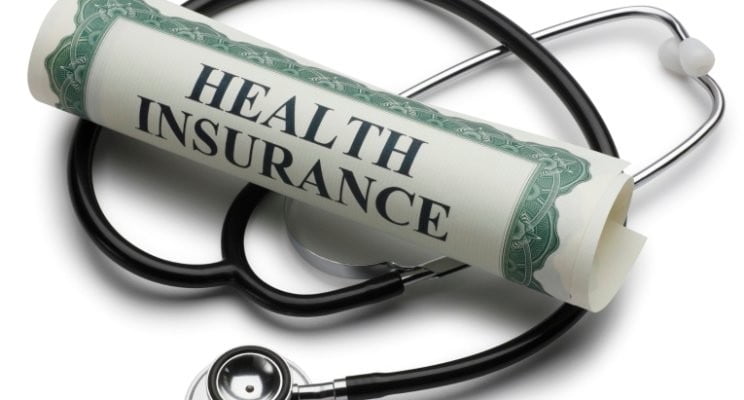15 Warning Signs of Lung Cancer You Might Ignore
Cancer is one of the leading causes of death worldwide. Lung cancer in particular is responsible for over 1.7 million deaths annually. What makes lung cancer especially dangerous is that the symptoms often do not appear until the later stages of the disease. By that point, the cancer may have already progressed significantly and treatment options are more limited. However, catching lung cancer early greatly improves the chances of successful treatment and long-term survival. Here are 15 warning signs of lung cancer that are commonly overlooked or ignored:
-
Chronic cough or change in cough
One of the most common early warning signs of lung cancer is a chronic or recurring cough. This could be a dry cough not associated with a cold or flu. Some people ignore a nagging cough assuming it is due to smoking, allergies, or acid reflux. However, a cough that persists for longer than 2-3 weeks or a cough that changes from your usual cough should not be ignored and warrants medical evaluation. Sometimes the first sign is coughing up bloody or rust-colored sputum. Report any change in your usual coughing pattern to your doctor right away.
-
Breathlessness or shortness of breath
Lung cancer can obstruct the airways leading to trouble breathing. This could show up as breathlessness during physical exertion or even when at rest. You may find yourself becoming winded more easily or having trouble catching your breath after climbing stairs. While being out of shape or having asthma could explain shortness of breath, persistent or worsening breathlessness should not be ignored. Let your doctor know if you are feeling more breathless than normal even with mild activity. Breathlessness that interferes with daily activities is a red flag.
-
Chest pain
Some people with lung cancer experience chest pain as the tumor grows and presses against the linings of the lung or chest wall. The pain may feel sharp, achy, or burn. It usually occurs on one side of the chest and worsens with deep breathing, coughing, or exertion. While chest pain has many potential causes like muscle strain or acid reflux, new chest pain that is unusual for you requires medical evaluation. Do not assume it is just a pulled muscle or ignore chest discomfort that affects your daily life.
-
Weight loss or loss of appetite
Unexplained weight loss can be an early sign of lung cancer, especially when combined with other symptoms like a cough or shortness of breath. Lung cancer or the cancer itself and the fatigue it causes can negatively impact appetite and ability to eat. Losing more than 5-10 pounds over a short period of time without trying requires medical investigation. Loss of appetite combined with breathing issues or other lung cancer signs is a red flag and needs to be reported to the doctor promptly.
-
Shoulder or back pain
The shoulder or back is a common site of pain caused by lung cancer that has spread to the bones or secondary to lung collapse. This type of referred pain occurs in about 1 in 5 people with advanced lung cancer. The pain could be on one or both sides of the back or shoulders and commonly radiates down the arm. It may worsen with breathing deeply, coughing, or exertion. New shoulder or back discomfort accompanied by other lung cancer symptoms like weight loss or cough should be evaluated. Do not ignore persistent shoulder or back pain even if it seems musculoskeletal in nature.
-
Hoarseness or voice changes
Having a hoarse or raspy sounding voice can sometimes be the first sign of lung cancer, especially in non-smokers. This happens when a tumor is located near or around the vocal cords or trachea causing compression or swelling. Some people may notice changes in their ability to project their voice or difficulty speaking for extended periods. Changes in speech patterns or voice quality that persist for over 2 weeks require medical attention. Inform your doctor about any unexplained or persisting voice problems.
-
Wheezing
Wheezing refers to a whistling or squeaky sound while breathing that occurs due to obstructed airflow in the lungs. It is commonly linked to respiratory conditions like asthma but can also manifest in lung cancer blocking the airways. Wheezing that occurs along with other symptoms like coughing, chest pain, or shortness of breath and does not respond to usual asthma treatments warrants lung cancer screening. Report any new onset or worsening of wheezing to your doctor without delay.
-
Loss of appetite
Losing interest in food or not feeling hungry can relate to depression, anxiety, or digestive issues but is also linked to lung cancer. One reason this sign is commonly ignored initially is people assume it is due to lack of cooking skills or being too busy. However, loss of appetite combined with weight loss or breathing difficulty should be a red flag, not something ignored or put down to lifestyle factors. Inform your doctor if you seem to be eating less for no explainable reason.
-
Fatigue
Experiencing ongoing fatigue is commonly brushed off as being tired from work, family responsibilities, or aging. But severe, persistent fatigue commonly accompanies lung cancer. This happens due to disruption of energy levels from cancer growth and progression. Feeling abnormally sleepy or lacking energy even after adequate rest could point to underlying health issues like lung cancer. Especially when accompanied by weight loss or breathing troubles, fatigue needs medical evaluation without delay.
-
Finger clubbing
Clubbing refers to the rounding and enlargement of fingertips with loss of the diamond-shaped pattern. It commonly occurs in lung cancer because of chronic low oxygen levels in the blood from lung obstruction. Finger clubbing develops gradually over months and may go unnoticed initially. But inspecting your hands regularly and reporting any morphological changes in finger size to your doctor could catch early lung cancer. This sign is painless but permanently deforming if not addressed promptly.
-
Loss of appetite
Losing interest in food or not feeling hungry enough can simply relate to depression, anxiety or digestive issues but is a red flag when linked to lung cancer. One reason people tend to ignore this sign initially is because they assume it’s due to lack of cooking skills or being too busy. However, loss of appetite combined with weight loss, breathing difficulty or chest pain should not be overlooked. Let your doctor know if you seem to be eating less for no obvious reason.
-
Chest infections
Recurrent chest infections or pneumonia that keep coming back could potentially relate to an underlying lung condition blocking airflow or inflammation like lung cancer. While occasional chest colds are normal, two or more chest infections within a year that respond poorly to antibiotics require investigation of the lung health status. Mention any frequent, persisting chest symptoms to your doctor to rule out lung cancer as a possible cause.
-
Headaches
While headaches have many potential triggers, it’s a warning sign in lung cancer if accompanied by other symptoms. This relates to lung cancer spreading to the brain causing swelling or bleeding. The headaches tend to be severe, persistent, and occur in the morning and worsen as the day progresses. Unusual new-onset headaches along with neurological deficits like vision changes require urgent medical attention.
-
Bone pain
Some people experience unexplained, severe bone pain often in the back, hips or chest. This happens because cancer has metastasized to the bones secondary to lung cancer. While joint and muscle pain has numerous causes, new bone pain that interferes with regular activities or wakes the person at night warrants medical attention combined with other lung-related signs.
-
Swelling of face and neck
Swelling or puffiness in the face, around the eyes or in the neck region occurs due to lung cancer spreading to adjoining lymph nodes and blocking lymphatic drainage. While swelling due to injury heals quickly, persistent new-onset facial puffiness for over 2 weeks along with breathing issues or chest symptoms is alarming and requires lung cancer screening.
In summary, while a single symptom in isolation may not necessarily indicate lung cancer, ignoring or brushing off combinations of these symptoms could result in delayed diagnosis when cancer has already advanced. Make it a habit to track any new or changing respiratory, chest or neurological symptoms. Do not hesitate to consult a doctor promptly if you experience two or more warning signs mentioned here, especially if accompanied by unexplained weight loss or fatigue. Catching lung cancer early vastly improves chances of cure. Don’t gamble with your health by ignoring your body’s signals.



